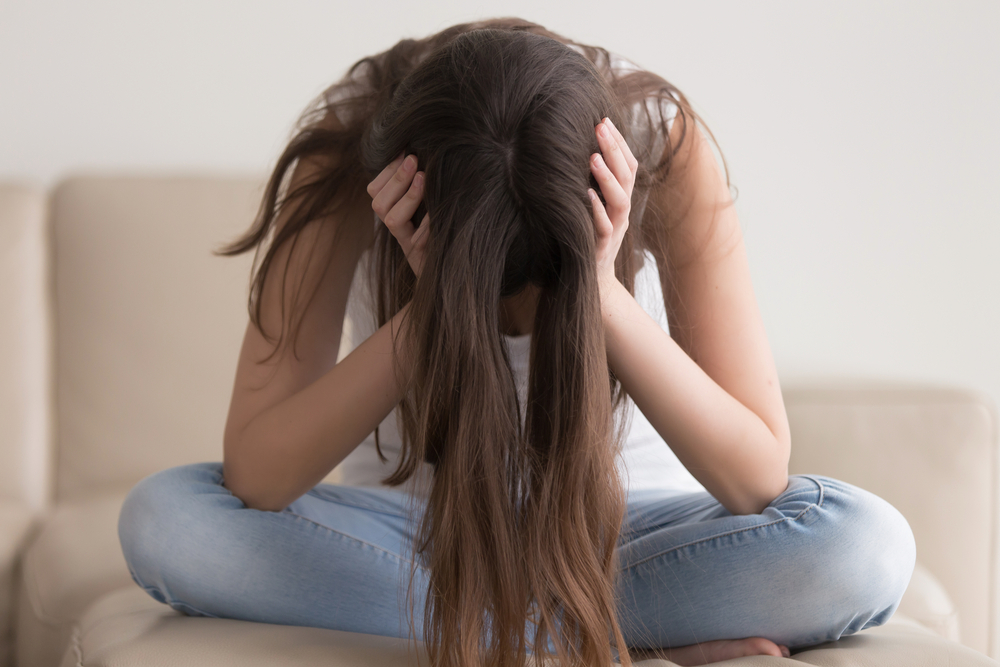Anxiety, as defined by the American Psychological Association (APA), is “an emotion characterized by feelings of tension, worried thoughts and physical changes like increased blood pressure.”
Although anxiety is the body’s natural response to stress, the symptoms of anxiety can be unpleasant and difficult to control. Every young person is different and has the propensity to experience a unique combination of physical symptoms of anxiety with varying levels of severity and durations.
The following examples include 11 of the most common physical symptoms of adolescent anxiety, provided by Healthline, and suggestions for how to treat them, respectively:
- Sleep disturbances: Insomnia or other sleep issues (e.g., waking up frequently)
- Create a peaceful sleeping environment: Research has found that the body naturally produces certain chemicals to help increase feelings of calmness and relaxation. When serotonin, known as the “feel-good” hormone, is released in a comfortable and/ or dark environment it is converted into melatonin.
- Avoid an erratic sleep schedule: Develop consistent sleep patterns by having a set bedtime and following it every day, as best as you can.
- Digestive trouble: Eat nutritiously and drink enough water.
- Prioritizing hydration: As is explained by experts, “water makes up over two-thirds of the healthy human body…it lubricates the joints and eyes, aids digestion, flushes out waste and toxins, and keeps the skin healthy.”
- Muscle tension: Engage in physical exercise regularly.
- Studies have shown that exercise curtails responses from both the sympathetic nervous system, which is responsible for the fight-or-flight reaction and minimizes hypothalamic-pituitary-adrenal (HPA) axis reactivity, which is the hormonal feedback system that reacts to stress.
- Rapid breathing:
- Practice mindful breathing exercises. Research has found breathing techniques can effectively help with relaxation, stress management, control of psychophysiological states, and improve organ function.
- Increased heart rate: Try different relaxation exercises to alleviate this symptom, like yoga or meditation.
- Headache:
- Try gently massaging your head and neck muscles to help relieve this symptom.
- Sweating: Anxiety activates the sweat glands, which triggers increased sweat production.
- Dress in layers, so when you get too hot you can remove some clothing.
- Step outside for some fresh air.
- Nausea: The Cleveland Clinic suggests the following when trying to control anxiety-induced nausea:
- Drink clear or ice-cold beverages.
- Eat light, bland foods (e.g., saltine crackers or plain bread).
- Consume smaller meals and eat more frequently.
- Trembling: Distraction can be a helpful tool to soothe this symptom.
- Provide yourself with a temporary distraction like calling a friend, reading a book, watching TV, etc.
- Stomach pain: Certain herbs and natural remedies can help ease this symptom.
- Try aromatherapy and/ or consuming certain herbs with antispasmodic properties such as spearmint, peppermint, lavender, or lemon.
- Shortness of breath: Try deep breathing exercises, such as:
- Alternate nostril breathing: Entails breathing through an alternate nostril, with each separate breath. It is used to relieve mental unrest and promote physical and mental balance.
- Diaphragmatic breathing: Also called abdominal breathing or deep breathing, entails focusing on the stomach area when breathing, instead of the chest to encourage full oxygen exchange. Abdominal breathing calms the nervous system, increases oxygen to the heart, and relieves anxiety.
Enduring excessive anxiety can result in psychological symptoms as well as physical symptoms that can adversely affect an adolescent’s health and daily life. Anxiety affects certain hormones in the brain, including cortisol, known as the primary stress hormone, and corticotropin releasing factor (CRF), which is the neuroendocrine system mediating the stress response. Therefore, learning applicable tools and effective techniques to help cope with anxiety can be invaluable to one’s quality of life.
Further Information and Support
For most of us, life can be very stressful, leading us to feel emotionally charged, which can cause anxiety, panic attacks, depression, and getting stuck in a cycle of being burdened with negative thoughts. Navigating through the challenges and emotional turmoil of life can be overwhelming, but you do not have to go through it alone. Engage Treatment is a Joint Commission Accredited professional psychological practice. We specialize in treating children, teens, and young adults struggling with depression and anxiety through community-focused treatment plans that incorporate a carefully selected combination of therapeutic interventions. Our compassionate, multidisciplinary practitioners are devoted to providing the highest quality of care that helps ignite positive change and enables clients to reach optimal health and well-being. Please do not hesitate to reach out for guidance. We are happy to answer questions and provide you with any additional information. Feel free to call us at 805-497-0605 or email us at [email protected]. You are also welcomed to get in touch by filling out our contact form. We look forward to connecting and having the opportunity to discuss how we might best be able to support you.
Contact Us
Westlake Campus:
IOP Program
2625 Townsgate Road, Suite 210
Westlake Village, California 91361
Agoura Campus:
Private Therapy & Parenting Program
30300 Agoura Road, Suite 250
Agoura Hills, CA 91301
805-497-0605
805-371-4862











© 2023 Engage Treatment Program, Inc. All Rights Reserved.
LGBTQ Friendly
About
• About Engage
• Our Team
• Career Opportunities
• Individual / Family Therapy






